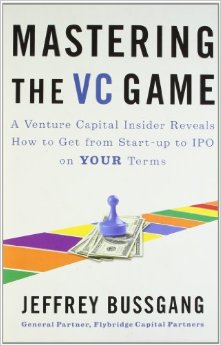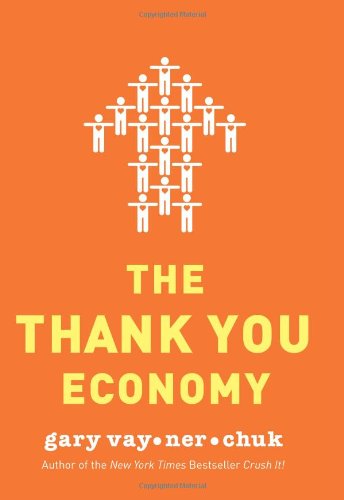
When you start socializing with entrepreneurs, one of the many pieces of advice that you’ll get is how to expand your startup’s toolbox. Whether this be productivity apps, marketing tools, lead generation services, or even books, you’ll always find community members swearing that a particular resource has worked for them. You’ll also be told that one of the keys to staying sharp as a leader of your company is to stay sharp. Reading books, if you are immersed enough with your company that you would consider downtime to be reading a book about business, is one of the best ways to stay current, sharp, and develop an eye for ingenuity.
With the holidays coming up, I have assessed a few books to get
When I was assessing on which books were the true winners, I shuffled through the obvious ones and decided to go with some books off the beaten path. This is list of books that I’ve read over the course of the year, so the lessons are fresh in my mind to pass onto you.
So you’ve read The Lean Startup. I recommend that you now read Nail It, Then Scale It

While many books that nail down this type of customer-centric methodology have overlapping themes and ideas, this book serves as a great compliment to Eric Ries’ The Lean Startup. We delved into the lean startup methodology on the JuiceTank blog (and we even held a weekend long workshop to teach the principles in practice), and I think what this book nails down is the process of scaling your lean business.
When a VC invests in a business, they are looking to see whether or not the startup founder has the ability to scale the business. The authors of the book, by Nathan Furr (an entrepreneurship professor at Brigham Young University) and Paul Ahlstrom (see Ahlstrom’s bio) focus heavily on the problems that arise once your product has started bringing in revenue. Their term for this “crossing the chasm.” Use any term for it that you like, but I have found that one of the key issues when scaling a startup is team members’ roles are not clearly defined.
One of the processes that the book highlights is going through the exercise of team transitions and turning “tasks” into revenue-generating objectives. What I liked about the book was that it had a lot of actionable items that you could apply towards your business – anything highlighted in this book can be turned into a objective. And as I said before, people can sometimes be the biggest issue that a startup faces (and I’m not talking about the customer). Sometimes a startup can grow to the point that is just difficult for a team member to adapt to. Sometimes it’s important to determine a team member needs to step out of the way for the company to grow. Overall, there are some important lessons to read from this book, and if you are in a transition stage for your startup, give it a look.
You’re looking to raise capital. I recommend Mastering the VC Game
 This is probably one of the best books that I’ve read on this subject. Jeff Bussgang, a VC currently at Flybridge Capital, tells a lot of great stories, making it a page-turner as well as a resource. He has interviewed many successful entrepreneurs and VCs, such as Twitter’s Jack Dorsey. Knowing how the VC industry actually works internally is critical to ever getting funding. Similar to the book I reviewed up above, I like to read books that also cover the “aftermath”, if you will, of the startup’s initial goal (getting a product out to launch, getting funding). Since far too few entrepreneurs that I talk to think about the road ahead (what happens once funding is granted?), I like that this book covers those concerns (and there can be many – so read up).
This is probably one of the best books that I’ve read on this subject. Jeff Bussgang, a VC currently at Flybridge Capital, tells a lot of great stories, making it a page-turner as well as a resource. He has interviewed many successful entrepreneurs and VCs, such as Twitter’s Jack Dorsey. Knowing how the VC industry actually works internally is critical to ever getting funding. Similar to the book I reviewed up above, I like to read books that also cover the “aftermath”, if you will, of the startup’s initial goal (getting a product out to launch, getting funding). Since far too few entrepreneurs that I talk to think about the road ahead (what happens once funding is granted?), I like that this book covers those concerns (and there can be many – so read up).
One thing that I also liked about the book was that Bussgang achieves a careful balance between the viewpoints of the entrepreneur and the VC (after all, he was once an entrepreneur), and so he gives some very sound advice (such as hiring an attorney that can help you navigate through negotiating a deal) that I haven’t seen in many books written by a VC.
The stories about how actual investments were made is the real page-turner of the book. There are so many other elements at play besides for the business plan and bottom line revenue. The due diligence process is full of less technical aspects (such as kind of people a particular VC feels comfortable working with), and goes over a litany of common issues that can happen in the pitch process. If you are a hoping to raise VC money in the future, you would be well-served to read this book. Let me know when you do, I’d love to chat with you about it.
To make your customers happy, this will help them to smile: The Thank You Economy
You’ll hear over and over again – make it personal, make the customer feel like they are important to you. That personal touch that a company can add to its service is easier said than done, but Gary Vaynerchuk is a master at this (I highly recommend that you watch his Ask Gary Vee show on YouTube). His perspective on social media is something that I try to carry with me every day. Where the majority of people use social media as a way of talking at one another, there is so much worthless cross-chatter happening that no real communication is even occurring. Vaynerchuk highlights the ways that he has mastered social media as a way to make customers feel like they matter.
According to Vaynerchuk, social media is actually a tool that gets us back to a time when “businesses lived and died by what was said via word of mouth and by the influence people had with one another. That meant every person who walked through the door had to feel like he or she mattered.”
Before you even read this book, I want you to think of how you are using the Internet to add value (for anyone). Then think about who you contact online so that they can add value for you. Then read this book, ask yourself those questions again, and I bet you’re entire perspective will be flipped.
Bonus book: for a great business chronicle to read on the plane… The PayPal Wars
I s elected this book because 1) it’s a great read, and 2) it summarizes the first three books that I reviewed in a giant case study. Eric Jackson, who ran the marketing team at PayPal from 1999-2003, does a great job of chronicling the history of the company before its major acquisition by eBay in 2002. Read about the growing pains that PayPal went through as it was on the path to being acquired by eBay. While the services may have been complimentary, the cultures of eBay and PayPal were vastly different.
elected this book because 1) it’s a great read, and 2) it summarizes the first three books that I reviewed in a giant case study. Eric Jackson, who ran the marketing team at PayPal from 1999-2003, does a great job of chronicling the history of the company before its major acquisition by eBay in 2002. Read about the growing pains that PayPal went through as it was on the path to being acquired by eBay. While the services may have been complimentary, the cultures of eBay and PayPal were vastly different.
If you are looking to read a thorough and exciting case study of a company that started from a scrappy startup to being acquired by a giant, you should give this book a go.
Have any other suggestions for books that should be read by every entrepreneur? Tweet at me or write in the comments!

Mason Carter, General Manager @masoncarter88
If you have any questions about this post or joining the JuiceTank community, send me a shout-out!
